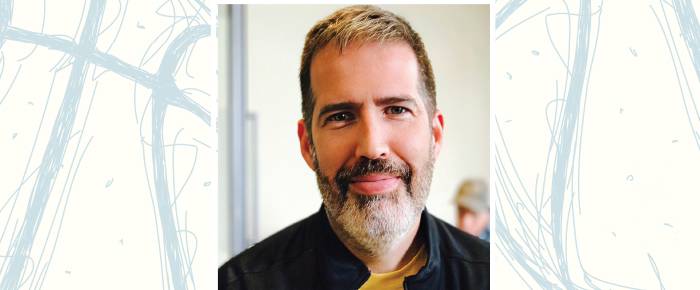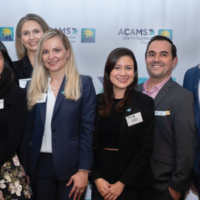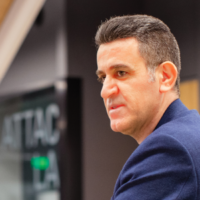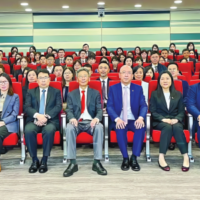
John MacKessy has over 25 years of regulatory and compliance experience and is currently a managing director and global head of anti-money laundering (AML) for BlackRock, the largest global asset manager. Prior to joining BlackRock, MacKessy was the global head of AML Monitoring for Citi Cards and global AML and sanctions officer for MasterCard. Before joining MasterCard, MacKessy was a regulatory consultant assisting financial firms with complying with regulatory enforcement actions and nonprosecution agreements. He has led the investigation of numerous complex financial crimes and was a member of the Bank of New York Mellon’s nonperforming assets (NPA) agreements monitorship team.
MacKessy holds a Bachelor of Arts degree from the State University of New York at Albany and a Master of Business Administration degree from Baruch College. He is a Certified Ant-Money Laundering Specialist (CAMS) and an advisory board member of the ACAMS New York Chapter. MacKessy is a longtime resident of the Irvington, New York, community and, as a USA Basketball Gold licensed coach, spends many weekends volunteering as a youth basketball coach. MacKessy spoke to the ACAMS New York Chapter Board about his career and the AML field and shared advice for incoming AML professionals.
Howard Spieler, CAMS (HS):How did you end up in a career fighting financial crime?
John MacKessy (JM): Even as a kid growing up, I was always interested in law enforcement and the legal system. The mystery of investigations and trying to figure out a crime puzzle was attractive to me as a career. Early in my career, I had an opportunity to join KPMG’s forensic investigations unit, and I have never looked back. At the time, this was a new and developing field, and I was blessed to be surrounded by so many former prosecutors and investigators who were instrumental in helping my career. From there, I trusted my instincts to grow my career and take chances with new opportunities.
HS: What are the most important lessons you have learned in creating/maintaining an AML program?
JM: Surround yourself with high-character professionals. No AML program has been successful without having great people there to support you. Creating a team environment that is supportive and willing to take on the challenges is key to surviving the ups and downs that will inevitably happen when you are implementing and executing an AML program. I have learned through my years of experience that no matter how well-written the policy or sophisticated the technology is, developing a high-performing team is the single greatest factor in a compliance program’s long-term success.
HS: You have watched the industry evolve in the past 20 years. How do you see the industry changing in the next 20?
JM: The past 20 years have demonstrated enormous strides in combating financial crime. These global efforts have made it more difficult for criminal organizations to launder and receive their proceeds of crime. In my view, the next 20 years will be determined by the following questions:
- How will digital assets and blockchain technology evolve both the technology and regulatory landscape? Maybe more importantly, how quickly will firms adapt to this changing landscape?
- What impact does the current geopolitical situation have on global unity in fighting financial crime? Will we see a greater degree of regulatory divergence creating opportunities for criminal organizations?
- Privacy is an equally important global topic, but will it impact ongoing efforts to improve ownership transparency?
- Will the industry and its key stakeholders fully embrace the concept of a risk-based approach? Can we accelerate the adoption of new technologies to improve compliance efforts?
I believe the next 20 years will have some challenges, but we have demonstrated enormous resilience as an industry.
HS: What advice would you give those new to the industry?
JM: I would encourage them to embrace new challenges and be unafraid to bet on themselves. My journey would not have been possible without the experience of challenging projects and managers that trusted me. It is through these opportunities that I learned about the industry, products, compliance frameworks and operational controls. One last piece of advice, I would encourage anyone new to the industry to understand the history of financial crime, the impetus for key regulations and the outcome of key events. History is the greatest teacher.
Interviewed by: Howard Spieler, CAMS, ACAMS New York Chapter co-chair, acams.ny.chapter@gmail.com, ![]()










